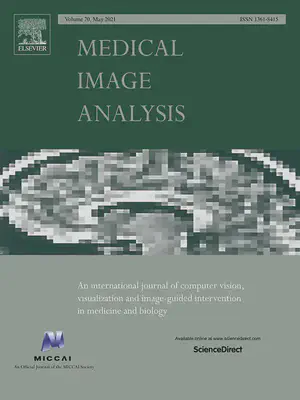[CfP] MedIA Special Issue on Explainable and Generalizable Deep Learning Methods for Medical Image Computing
CAI4CAI members are contributing to guest editing the Medical Image Analysis Special Issue on Explainable and Generalizable Deep Learning Methods for Medical Image Computing. The final submission dealine is on December 1, 2021 but papers will be reviewed as they arrive.

Call for Papers
Medical Image Analysis Special Issue on Explainable and Generalizable Deep Learning Methods for Medical Image Computing
Description
Deep learning has recently revolutionized the methods used for medical image computing due to automated feature discovery and superior results. However, they have significant limitations that make clinicians skeptical on their usefulness for clinical practice. Deep learning models are essentially black boxes that do not offer explainability of their decision-making process which in turn makes it hard to debug them when necessary. The poor explainability leads to distrust from clinicians who are trained to make explainable clinical inferences. In addition, their generalizability is still limited in clinical environments due to the many different imaging protocols, large variations in image-based manifestation of pathologies and rare diseases whose related data may have not been used during training. The generalizability problem becomes even more conspicuous when a deep learning model trained on data from a given medical center is deployed to other medical centers whose data have significant variations or there is a domain shift from the training set. Consequently, there is an urgent need for innovative methodologies to improve the explainability and generalizability of deep learning methods that will enable them to be used routinely in clinical practice.
Topics of Interest
To address the limitations of deep learning methods in medical image computing, this special issue solicits novel explainable/interpretable and generalizable deep learning methods for intelligent medical image computing applications. The methods should provide novel explainable/interpretable and generalizable solutions to key application domains such as disease classification and prediction, pathology detection and segmentation, image registration and reconstruction. Topics of interest include, but not limited to the following:
- Explainable/interpretable deep learning models for medical image computing
- Methods that offer explainability and interpretability in deep learning models for disease characterization and classification using medical images
- Learning interpretable knowledge from unannotated/annotated medical images
- Explainable deep learning networks for computer-aided diagnosis from medical images
- Incorporation of clinical knowledge into deep learning models for interpretable medical image analytics methods
- Generalizable deep learning methods when the training medical image datasets are small
- Novel data augmentation, regularization and training strategies to reduce over-fitting, especially in case of rare diseases and high-dimensional images where the training set is small
- Integration of prior medical knowledge into deep learning models for medical image analysis
- Human interaction to improve the robustness when dealing with rare or complex cases, such as for segmentation
- Learning domain-invariant features for images from different modalities, scanning protocols and patient groups
- Unsupervised, weakly supervised and semi-supervised model adaptation to new domains for medical image computing
- Out-of-distribution detection methods when applying a model to novel data not previously trained on
- Generalizable models for images from multi-centers, multi-modalities, multi-diseases or multi-organs
- Generalizable deep learning methods in cases of images with potential domain shift
Accepted papers should demonstrate the improvements offered by their methods compared to previous deep learning methods.
Important Dates
- Paper submission deadline: December 1, 2021.
- 1st round of Reviews: Feb 1, 2022.
- Revised manuscript due: April 15, 2022.
- Final decision: May 15, 2022.
- Camera ready version: June 15, 2022.
Guest Editors
- Guotai Wang, PhD. University of Electronic Science and Technology of China
- Shaoting Zhang, PhD. The University of North Carolina at Charlotte, and SenseTime Research
- Tom Vercauteren, PhD. King’s College London
- Xiaolei Huang
- Dimitris Metaxas, PhD. Rutgers University